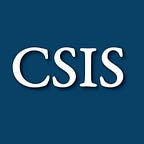Westinghouse’s Bankruptcy and its Implications
By Jane Nakano| April 4, 2017 on CSIS.org
Westinghouse Electric Co., the U.S. subsidiary of Japan’s Toshiba Corp. since 2006, filed for bankruptcy on March 29. The company believes that the bankruptcy will allow it to drop its money-losing construction operation and reorganize around the nuclear fuel and power plant servicing lines of businesses that continue to be highly profitable. The bankruptcy stems largely from the significant delays and cost overruns at the two nuclear projects in the United States — two at the Vogtle site in Georgia and two at the V.C. Summer site in South Carolina — which can be attributed to multiple factors, including additional regulatory requirements post Fukushima, multiple financial and legal disputes, and fixed-price contracts with project owners.
Whatever the main culprit, the bankruptcy has several major implications. On the domestic front, the ongoing projects in Georgia and South Carolina face major uncertainties. Westinghouse is likely hard pressed to abandon the work, as doing so would incur billions of dollars in damage claims. Likewise, the owners of the Vogtle and V.C. Summer projects — already three to four years behind the original schedule — could walk away, as the projects are only about one-third complete, or turn to another builder to take the projects to the finish line if they fail to strike a deal with Westinghouse or Toshiba to salvage the relationship.
The bankruptcy and the underlying troubles at the two U.S. nuclear project sites are a major damper on the already weak appetite for new builds in the United States, at least for conventional-scale reactors (i.e., non–small modular reactors). First to be approved for construction and operation under the current licensing regime after the Three Mile Island accident in the late 1970s, the two projects became the litmus test for new builds in the United States. It became a crucial test for the U.S. industry to complete them on time and under budget. The latest adjustment to completion schedule sets the projects very tightly against the federal deadline of December 31, 2020 (service commencement), to qualify for the nuclear energy production tax credit, which was an important support for nuclear energy out of the Energy Policy Act of 2005. Also, a collapse of the Vogtle project could seriously imperil future political support for nuclear projects, as it is a recipient of an $8.3 billion federal loan guarantee by the U.S. Department of Energy. Additionally, a future plan for new builds could face significant headwinds if the project failures shift significant costs to the rate payers in the affected states.
A healthier Westinghouse, post bankruptcy proceeding, could still change the tide, although the company has an extremely short list of potential takers notwithstanding the current financial woes. Given the strategic sensitivity of nuclear reactor designing and manufacturing, the U.S. government is most likely to block Westinghouse takeover/acquisition by a company from countries that pose a real or perceived strategic threat to U.S. national security. One potential lifeline could to be acquisition by Korea Electric Power Corp. (KEPCO), which may be open to picking up Westinghouse shares in exchange for Toshiba’s stake in NuGeneration Ltd. (NuGen). NuGen, which is 60 percent owned by Toshiba, is developing a nuclear power plant in the United Kingdom that is scheduled to house three Westinghouse AP1000 reactors. Coincidentally, British regulators announced just a day after the bankruptcy filing that they have approved the AP1000 reactor design — a step necessary for any new nuclear plant in the United Kingdom. This development illustrates that Westinghouse’s saga in no way invalidates the viability of Westinghouse-designed reactor technology. In fact, the ongoing AP1000 construction in China — two units each at Sanmen and Haiyang — remains on track and scheduled to be completed by the end of 2017, as the bankruptcy filing only affects Westinghouse’s U.S. operations. Also, Westinghouse remains in negotiations with its Indian counterpart for the construction of six units of AP1000 reactors in India.
Most significantly, the bankruptcy is another sign that the center of the global nuclear industry may be starting to shift to nonmarket economies, where companies often benefit from a type or level of government funding or advocacy that is not available to companies from countries within the Organization of Economic Cooperation and Development (OECD). Specifically, Toshiba has announced plans to halt its nuclear construction business, leaving Japan with two nuclear reactor builders — Hitachi and Mitsubishi Heavy Industries. While the demand for nuclear energy has already shifted to non-OECD economies, as exemplified by the rapid buildout of new nuclear power plants in China in recent years, a healthy share of these reactors has been supplied by established reactor manufacturers, such as from the United States, Japan, and France. As the reactor manufactures from OECD countries face a series of economic challenges, such as AREVA of France and now Westinghouse, the allure of reactors by established suppliers — underpinned by high safety standards and experiences — may become fast eclipsed by the financial strengths of projects by non-OECD suppliers, significantly redrawing the landscape for the global nuclear industry.
Jane Nakano is a senior fellow with the Energy and National Security Program at the Center for Strategic and International Studies (CSIS) in Washington, D.C.
Commentary is produced by the Center for Strategic and International Studies (CSIS), a private, tax-exempt institution focusing on international public policy issues. Its research is nonpartisan and nonproprietary. CSIS does not take specific policy positions. Accordingly, all views, positions, and conclusions expressed in this publication should be understood to be solely those of the author(s).
© 2017 by the Center for Strategic and International Studies. All rights reserved.
